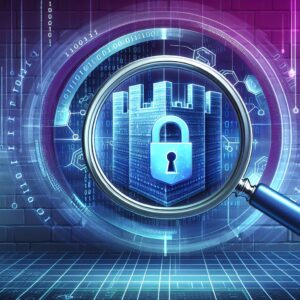In today’s digital age, our reliance on technology has grown exponentially. We use computers and smartphones in almost every aspect of our lives, from communicating with loved ones to conducting financial transactions. While these technological advancements have brought convenience and efficiency, they have also opened the door to potential cyber threats and vulnerabilities. This is where cyber security and computer forensics come into play, to help protect and investigate digital assets.
What is Cyber Security?
Cyber security refers to the practice of protecting systems, networks, and data from cyber attacks. These attacks can come in many forms, such as malware, phishing scams, and denial of service attacks. The goal of cyber security is to safeguard digital assets and prevent unauthorized access, disruption, or damage.
There are various measures that can be taken to enhance cyber security, including the use of firewalls, encryption, and multi-factor authentication. It is important for individuals and organizations to be proactive in their approach to cyber security, as the consequences of a cyber attack can be devastating, both financially and reputationally.
The Role of Computer Forensics
Computer forensics is a branch of digital forensic science that focuses on the investigation and analysis of digital devices and data. This field is essential for identifying and gathering evidence related to cyber crimes, such as hacking, data breaches, and intellectual property theft.
Computer forensics experts use a combination of tools and techniques to retrieve and analyze data from computers, smartphones, and other digital devices. They can uncover critical information that can help law enforcement agencies and organizations track down cyber criminals and prevent future attacks.
The Synergy between Cyber Security and Computer Forensics
Cyber security and computer forensics go hand in hand in protecting and investigating digital assets. While cyber security focuses on preventing and mitigating cyber attacks, computer forensics is crucial for identifying and prosecuting cyber criminals.
By implementing robust cyber security measures, organizations can reduce their vulnerability to cyber attacks and protect their digital assets. In the event of a security breach, computer forensics experts can conduct thorough investigations to determine the cause of the breach, identify the perpetrators, and gather evidence for legal proceedings.
Conclusion
In conclusion, cyber security and computer forensics play a critical role in safeguarding our digital world. By being proactive in implementing cyber security measures and leveraging the expertise of computer forensics professionals, individuals and organizations can mitigate the risks of cyber attacks and protect their valuable digital assets.
It is important for technical professionals to stay informed about the latest trends and developments in cyber security and computer forensics, as the landscape of cyber threats is constantly evolving. By investing in the right tools and training, we can all play a part in creating a more secure and resilient digital environment.




